Inside the 2021 Longlist | Big Ideas & New Perspectives
December 15, 2021
The best Big Ideas & New Perspectives books of the year take a magnifying glass to established expectations, unpacking why those ideas and norms exist, how they impact us all, and the many possible ways to go about changing them.
If 2020 was our wake-up call, 2021 was the moment of dazed consciousness after a night of fitful sleep. In the hazy morning light, we slowly became reacquainted with our existence. Gathering ourselves back together this year, we are coming to realize that the world has shifted overnight. There are fewer birds singing. There are more audible sounds of suffering. There are new ways of meeting, working, investing, communicating, entertaining, learning. The list goes on and on. This year we've opened our eyes to all these changes—that have actually been in process for decades—and in this next year, we should take more steps to embrace them.
Many of us are wracked with anxiety as we weigh all the risks involved with every decision, personal and professional. How can I hold this important meeting virtually? Is the group small enough to meet in person? Is the weather nice enough to meet outside? If I make restaurant reservations, will the staff be wearing masks? If my family gets sick, what will I do? How do I talk to my kids about topics like racism, climate change, health, and religion when I am realizing that even I, myself, do not know enough about those things?
While we shouldn't expect to fix the world and its unequal systems in 365 days, 2021's year's worth of good books gives us plenty of ways to change directions or continue forward with more sustainable and equitable practices.
Books with big ideas don't need to profess to have the answers to all the questions they pose, which is what I like about them. They take a magnifying glass to established expectations, unpacking why those ideas and norms exist, how they impact us all, and the many possible ways to go about changing them.
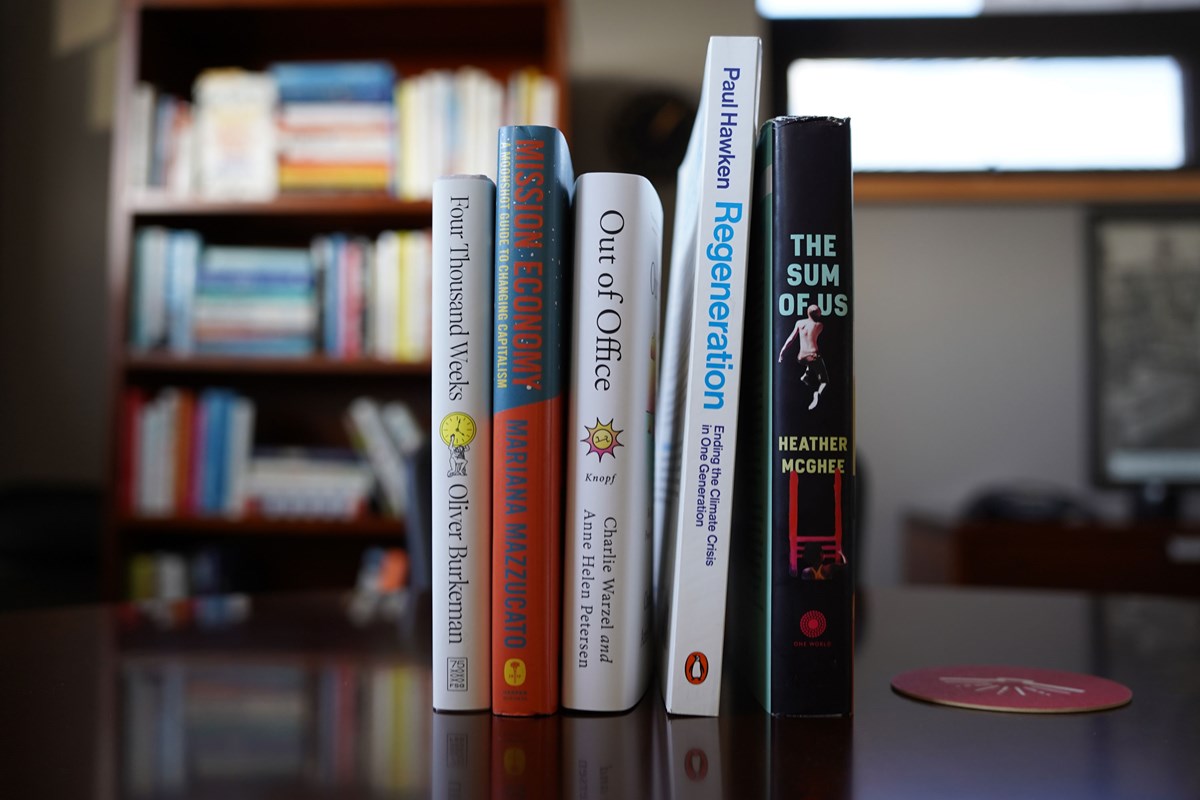
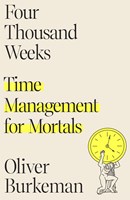 Four Thousand Weeks: Time Management for Mortals by Oliver Burkeman, Farrar, Straus and Giroux
Four Thousand Weeks: Time Management for Mortals by Oliver Burkeman, Farrar, Straus and Giroux
As Porchlight’s Social Media Manager, I think about organization a lot and frequently debate how much of my time (and stress) it’s actually worth. My default conclusion is that putting in the extra effort to make my work organized will help me in the future, but within only a few pages, 4,000 Weeks makes me seriously reconsider this idea. Author Oliver Burkeman offers a uniquely philosophical perspective on burnout, a recurring theme in the Great Resignation of 2021. Burkeman makes a strong connection between business and self-help—making a convincing argument on how productivity is good for work but not very good for making us feel fulfilled in life. This book is a new iteration of the “work smarter, not harder” axiom, and its length is suitably succinct while still debunking many burnout-inducing preoccupations and routines like achieving Inbox Zero, fearing FOMO, opting for convenience over value and quality, fearing “settling” for a spouse or a job, avoiding rest, dedicating time to occupation over hobby, and more.
Essentially, Burkeman unburdens us from the belief that time is something we each choose how to use. Rather, he (and the many journalists, authors, and philosophers whom he quotes) reminds us that it is literally impossible to do everything you wish to, so you might as well resist the ones that are getting in the way of "building the most meaningful life you can, in whatever situation you’re in,” allowing the time we have on Earth to be used for “responding to the needs of your place and your moment in history.”
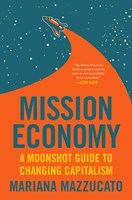 Mission Economy: A Moonshot Guide to Changing Capitalism by Mariana Mazzucato, Harper Business
Mission Economy: A Moonshot Guide to Changing Capitalism by Mariana Mazzucato, Harper Business
Something heavy on my mind for about half of my life has been climate change, and doing what I can to limit my own environmental footprint doesn't feel like enough anymore. And the more books I read, the more I’m realizing it never was enough. But that is why it feels so fulfilling to find books that offer unexpected perspectives on how to achieve big goals, which is what makes Mission Economy by Mariana Mazzucato so exciting and essential to read.
The book argues that for progress of any form to happen, the government's support and active participation is not just helpful but very necessary. She cites high-risk technologies that came to fruition thanks to state investments, such as the internet, GPS, and of course the first moon landing as prime examples of what we can achieve when public and private investors and innovators collaborate. As nice as it would be to believe we can all make the best decisions for ourselves and our community, we do as busy human beings rely on large organizations to help us decide worthwhile investments of our own time and money. In the same way you may choose your next book based on Porchlight's Business Book Awards selections, investors are less apt and able to take risks than larger or more powerful entities like governments.
For such a slim book, it's strongly written and clearly lays out the issues with Capitalism and how changing the way it is structured and taking a mission-oriented approach to government, while not simple, can support individuals and our planet. As several of our writeups about the longlisted books have mentioned, Capitalism is failing us. Now that we’re done pointing out a few of the ways why, Mission Economy by Mariana Mazzucato is here to show us how to make capitalism work better for us all. We need to expect more than band-aid fixes from our government, and I truly hope that Mazzucato's visionary approach to the political economy emboldens and guides current and future policymakers, businessowners, and everyday consumers.
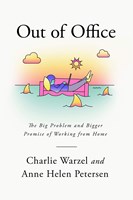 Out of Office: The Big Problem and Bigger Promise of Working from Home by Charlie Warzel & Anne Helen Petersen, Knopf
Out of Office: The Big Problem and Bigger Promise of Working from Home by Charlie Warzel & Anne Helen Petersen, Knopf
Anne Helen Petersen's 2020 release Can't Even spoke to the strife of the United States’s millennial generation who were raised with unrealistic expectations of success in a world controlled rather unforgivingly by older generations for whom capitalism has functioned much better. That book proved to me that Petersen is good at deciphering how societal and economic systems impact our everyday lives and struggles, and Out of Office is a much-needed, pandemic-minded addition to her investigations on the larger societal issues that are negatively impacting our mental health. Petersen and her husband Charlie Warzel unpack the unsavory, exploitative side effects of modern capitalism that are holding us back in our work lives and, by extension, our personal lives.
This book is refreshingly not pushing us to all become entrepreneurs and work for ourselves. Instead, it has bigger goals of changing the entire business system, pushing it to become actually flexible. With case studies that evaluate four-day workweeks, 30-minutes-or-less meetings, creatively designed offices, streamlined office tech, on-site childcare, and more, Out of Office highlights how what’s not working or not valued in offices also needs to be reconsidered in our larger society.
Though the book's audience is statistically narrow (only about 40 percent of workers have jobs that can be done remotely), it's important to consider how we can take control of our time and mental capacity back from our jobs, and by extension, take control of our happiness back too. And for those on the hunt for a new job or career, it teaches us to notice and make sense of various workplace structures and cultures. Out of Office is an insightful and inspiring book that encourages us to improve our work-from-home skills.
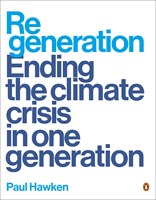 Regeneration: Ending the Climate Crisis in One Generation by Paul Hawken, Penguin Books
Regeneration: Ending the Climate Crisis in One Generation by Paul Hawken, Penguin Books
Colonization, convenience, industrial agriculture, gas and oil, (I could go on) have given us many things in our lives, but they’ve also taken away much of the life on our planet. Regeneration by Paul Hawken is a sobering look at what’s left and how we can choose to build our planet and ourselves up more conscientiously than before. Hawken’s third book Growing a Business is on our list of The 100 Best Business Books of All Time, and since it was published in 1988, it's become even more important that business align their work with their values and that one of those values is environmental sensibility. His eighth and latest book Regeneration exhibits his entrepreneurial expertise in smaller doses, serving a broader audience than his other books, speaking to us all as humans co-existing on this planet. Broken up into six frameworks of action—Equity, Reduce, Protect, Sequester, Influence, and Support—the book sweeps the world’s ecosystems, showing us the work that needs to be done, the work already being done, and how we can be a part of the movement toward zero carbon emissions, which new climate science shows would be the point at which global warming begins to diminish.
Hawken’s writing itself is vividly descriptive, serious, and motivating, and by including large photos of enchanting landscapes, handsome wildlife, incredible technology, the people, cultures, and communities we co-exist with but may not see every day, and more, Hawken wisely plays to humans’ visual learning style, showing us what and who is at stake while helping us visualize the very possible eco-friendly future. Handling the wide pages and digesting the large, detailed photos evokes nostalgia, encouraging us to call back our childhood minds that likely had a lot more hope for the world than we do now. But, luckily, as adults, we can make a single, deliberate decision to guide our efforts in our daily lives: "We are either stealing the future or healing the future."
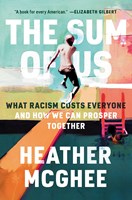 The Sum of Us: What Racism Costs Everyone and How We Can Prosper Together by Heather McGhee, One World
The Sum of Us: What Racism Costs Everyone and How We Can Prosper Together by Heather McGhee, One World
The "Zero-Sum" paradigm that persistently divides our communities is an all-or-nothing, (literally) black and white approach that has hurt us all more than helped the white population who has instilled and reinforced it. It goes further than the natural inclination to compete, because by hurting others we end up hurting ourselves, and by reading The Sum of Us, we are able to take a few steps back to see all that we are missing out on in allowing the way things have been to define the way things could be.
In The Sum of Us, Heather McGhee recognizes racism’s deep roots in America through historical and economic lenses: The racial hierarchy used to establish the white man’s power in the United States, the desegregation laws that prompted some towns to close public areas like pools and parks for everyone, the racist policies that spread to financial aid pitfalls that are dragging students of all backgrounds into debt, the long-lasting internalized racism and public policies that make whites eschew diverse neighborhoods and that make it almost impossible for Black and brown families to afford housing in upper-class neighborhoods, and more.
It’s not surprising that our lives revolve around money. It is surprising to find out where that money has been and continues to be unequally distributed. McGhee connects the dots on how this disproportionate distribution is increasingly dragging down all of our lives. Understanding what often causes a problem can stop us from running into the problem altogether, but at this point there is no avoiding it. McGhee urges us to build up our communities in new ways, such as establishing Truth, Racial Healing and Transformation centers as some colleges and cities already have.
McGhee’s personal journey through the United States provides us all a shared perspective on a problem that has plagued our country since its birth. Despite the difficult confrontations with our country’s past and present, McGhee leaves us feeling empowered that inequality is not an isolated issue, and by identifying and tackling its many corollaries, we will all be more of a united and stronger United States of America.







